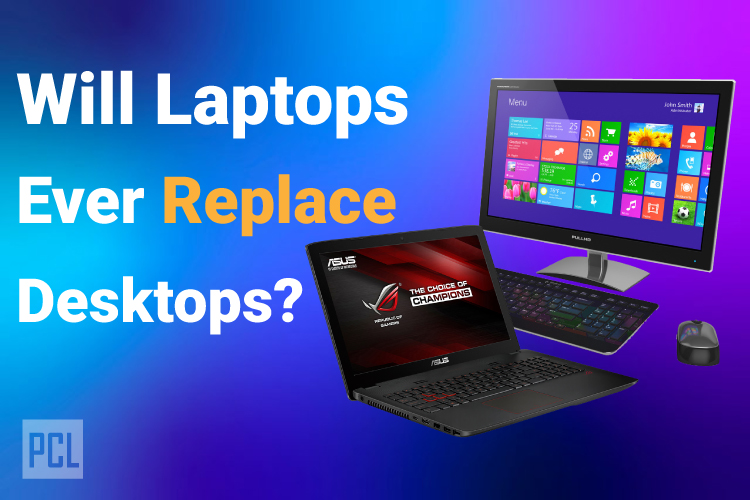Last Updated on May 30, 2023 by Ali Raza
For over a decade, laptops have continued to replace desktops as the preferred personal computer platform. However, there are still certain things that desktops can do better than laptops, and it’s unlikely that these differences will ever completely disappear.
For this reason, laptops will always be just one of several types of personal computers on the market, each with its own advantages and disadvantages. In this article, we’ll examine why laptops will never fully replace desktops and what you can do to get the most out of your laptop and your desktop computer.
The Simple answer is Never the Laptops Ever Replace Desktops.
Future Expectations of Will Laptops Ever Replace Desktops
It’s no secret that laptops have been on the rise in recent years. They’re portable, easy to use, and offer a level of convenience that desktops can’t match. But despite their growing popularity, laptops will never completely replace desktops.
Are Desktop PCs Dying?
Everyone knows that laptops have been gaining popularity in recent years. They’re more portable, more affordable, and often more powerful than their desktop counterparts. But despite their many advantages, laptops will never completely replace desktop PCs.
Related Posts:
Which Are Better Laptops Or Desktops?
Laptops have come a long way since they were first introduced in the early 1980s. They’re now more powerful than ever and offer features that desktops simply cannot match. But there are still some good reasons to choose a desktop over a laptop. Here are some things to consider when making your decision
The Pros
- Laptops are much more portable than desktops, making them ideal for people who travel frequently or who work from multiple locations.
- They also take up less space, making them a good choice for people who live in small apartments or who don’t have a lot of extra room.
- laptops typically have longer battery life than desktops, so you can use them for longer periods of time without having to worry about finding an outlet.
- they’re also generally cheaper than desktops, especially when you factor in the cost of a monitor, keyboard, and mouse.
- Some people find that they type faster on a laptop than on a desktop because the keys are closer together.
The Cons
- Laptops are more expensive than desktops. When you factor in the cost of a monitor, keyboard, and mouse, a laptop is almost always going to be more expensive than a desktop.
- Laptops are less powerful than desktops. A laptop might be able to handle day-to-day tasks and even some light gaming, but it’s not going to be able to compete with a desktop when it comes to raw power.
- Laptops are harder to upgrade than desktops. It’s possible to upgrade a laptop, but it’s not as easy as upgrading a desktop.
Do Laptops Last As Long As Desktops?
When it comes to laptops, there are a few things that users have to take into consideration. One of those things is that laptops don’t last as long as desktops. While a laptop might be able to handle everything you need for a few years, eventually it’s going to start slowing down and won’t be able to keep up with the demands of new software and games.
Another downside that Laptops never Replace Desktops with laptops is that they’re not nearly as upgradeable as desktops. Sure, you can add more RAM or replace the hard drive, but when it comes to upgrading the processor or graphics card, you’re pretty much out of luck. That means that when your laptop starts lagging behind, there’s not much you can do about it short of buying a new one.
Conclusion
Though laptops have made great strides in recent years, they still have a ways to go before they can completely replace desktop computers. Their portability is their main advantage, but that also means that they are more susceptible to damage. They also tend to have shorter lifespans than desktops, and their smaller size means that they typically don’t have as much storage space or processing power. For now, the answer to Will Laptops Ever Replace Desktops is that laptops and desktops will continue to coexist.





